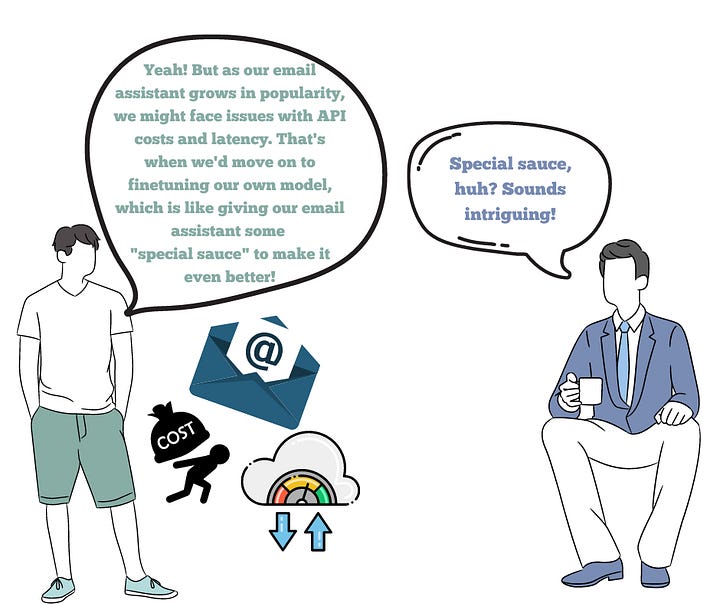Newsletter: Decoding the Economics of ML Products in the LLM Era
The impact of Large Language Models on the economics of AI product development and their influence on the ML product lifecycle.
Hey there, MLOps enthusiasts!
We're absolutely thrilled to welcome you back to our newsletter! 🎊 We've got some fantastic news and updates for you today, so let's jump right in:
1. Expanding Our Horizons: TinyMLOps and Beyond!
We initially focused on the fascinating world of TinyMLOps, but guess what? We're bringing even more value to your inbox! Without steering too far from our roots, we'll sprinkle in additional MLOps content to broaden your understanding of the machine learning operations landscape. Get ready to embark on a journey of discovery and growth! 🌱
2. The Grand Return: Our Exciting Journey
You might have noticed we were away for a while, and we owe you an explanation. Last year, our team took a much-needed mental break to recharge and explore new horizons. We travelled, reflected, and searched for the perfect topics to write about. Though we had countless ideas, we couldn't quite settle on the right one.
But now, we're back with a fresh perspective and more energy than ever! 🎉
3. Featured Blog: Decoding the Economics of ML Products with LLMs


Large language models are AI systems that can understand and generate human-like text. LLM APIs enable companies to build applications faster with little to no data. They're a low barrier to entry, allowing even small startups to build and test their ideas without investing heavily in R&D.


In our latest blog, we delve into the impact these APIs will have on the economics of AI product development. We explore the advantages and challenges of using LLM APIs, finetuned LLMs, and custom models at different stages of an ML product's lifecycle.
As your application grows larger, prompts get longer, and you start to get more users, your API costs will rise exponentially and make your business unsustainable. Finetuning a model can increase accuracy, reduce hallucinations, and make AI-generated outputs more predictable. Deploying the finetuned model on your own servers will also save costs and improve client trust. Custom models will give further savings and improve latency, making your AI product even more efficient. However, building a custom model requires a dedicated data science team and a significant amount of training data.

Skipping the API stage could result in higher upfront costs, including hiring data scientists and collecting data. Using APIs first allows companies to quickly validate their idea and build a capable MVP without substantial investments in R&D or data collection.
It removes the barrier to entry that only startups with funding or teams with access to private data sources could cross. Solving this cold start problem is one of the most significant contributions that LLM API companies are playing in the economics of building machine learning products.
Intrigued? Embark on a journey to unveil the fascinating influence of LLMs on the economics of ML products by clicking here. 🚀
4. Upcoming Events
We know that our readers love staying in the loop with industry events, and we're here to help! Check out these upcoming gatherings that will bring together machine learning practitioners, experts, and enthusiasts:
LLMs in Production Conference: Join this online conference organized by MLOps Community and learn how experts are deploying LLM and solving real-world challenges. Happening on 14th April.
That's it for this edition of our newsletter. Stay tuned for more exciting content on TinyMLOps and MLOps in the upcoming weeks. Happy reading! 📚




